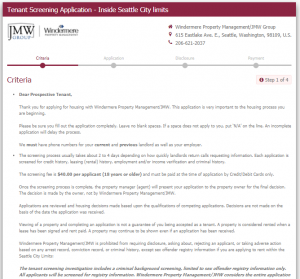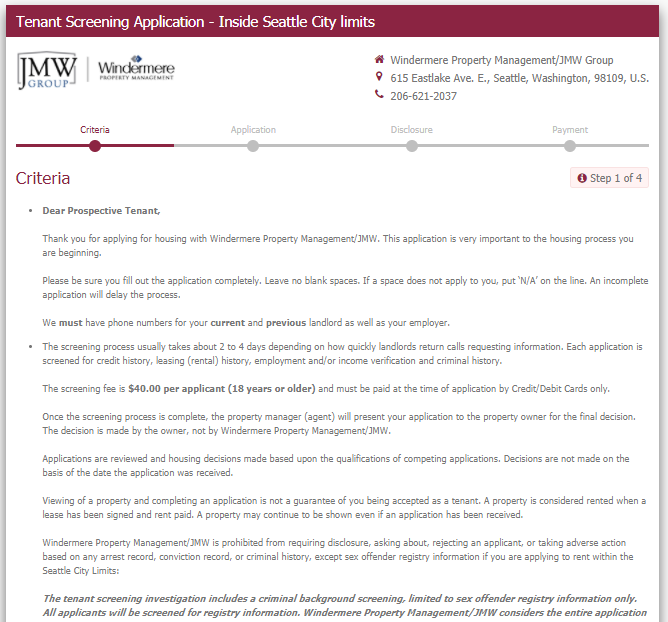Don’t make these rookie mistakes! Avoid a sticky situation with your tenants by following these three rules to property management. Make sure you are following the laws of your location, renting your house out isn’t easy, but don’t make it harder on yourself than it needs to be.
Rookie Mistake: Not making tenants formally apply.
The application process is an important step when determining if tenants are right for your investment home.
The resu lts provide a legal basis for accepting or rejecting applicants while mitigating the landlord’s risks of an unlawful discrimination claim. Keep in mind though, there are a considerable number of laws that regulate what can and can’t be considered, and they vary from one jurisdiction to the next. For instance, it’s a violation of Seattle City Statute to even screen an applicant’s criminal history, whereas that’s normally considered a vital part of the screening in all other local jurisdictions.
lts provide a legal basis for accepting or rejecting applicants while mitigating the landlord’s risks of an unlawful discrimination claim. Keep in mind though, there are a considerable number of laws that regulate what can and can’t be considered, and they vary from one jurisdiction to the next. For instance, it’s a violation of Seattle City Statute to even screen an applicant’s criminal history, whereas that’s normally considered a vital part of the screening in all other local jurisdictions.
Also, know what your minimum standards are and why. If you think the tenant needs to have a 750 credit score, know why you think that – is this a luxury home? Is that credit score indicative of how they will treat the home, or is it arbitrary? Keeping standards high can help, but keeping them too high can result in unnecessary vacancy. Will someone with a 690 treat the home the same? Did they really need to have this same job for 3 years? Or will someone who just moved here treat the house with the same respect?
In some local jurisdictions, these criteria must all be published with your advertisement for rent.
Rookie Mistake: Not having a written lease.
You might think that because ‘they seem like good people’, or because you want them on a month to month basis, that you don’t need to have a written lease or rental agreement. Just wait until you do your annual inspection and find that they have unauthorized pets who have brought fleas and mice into the home. Without written terms, you’ll have a hard (often impossible) time holding the tenants financially responsible. Having a written lease won’t solve all problems, but it’s a huge first step.
Also, as laws vary so widely, stay away from generic lease forms. Use a lease from your local landlord’s association, or have an attorney draft one for you. You want to protect yourself and your investment as best as you can, and having a written agreement is a fundamental aspect to that business relationship between landlord and tenant. You can fall back on it for those difficult conversations, like how they should pay a pet deposit and that they’re responsible for that infestation.
Rookie Mistake: Not properly recording the condition of the property when the tenants move in.
This is critical in order to determine what damage was done by the tenant that exceeds normal wear and tear. Photos are your best friend in court, to accompany a written report of how the place looked on the day of move in. Don’t forget that dent in the western wall of the living room or all those specific light bulbs that were working in the bathroom – these are items that should be documented so when the time comes to move out, you have proof of what is their responsibility and what is yours.
Don’t forget to record the utility meter readings, and to ensure that the tenants properly transfer appropriate utility accounts into their name.
Avoid these common mistakes to get yourself out of future implications, save money and time, and get the most out of your investment property.

 Facebook
Facebook
 X
X
 Pinterest
Pinterest
 Copy Link
Copy Link


